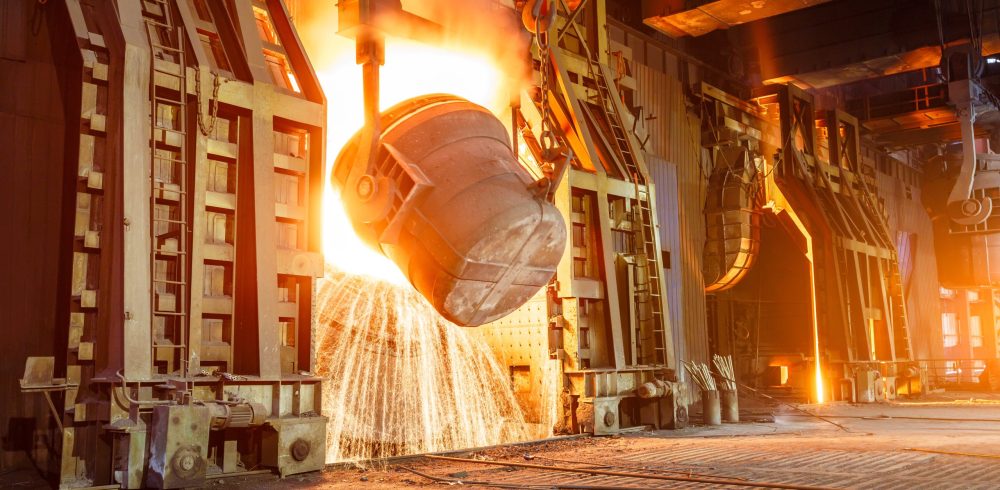The term foundation industries groups together glass, ceramics, cement, metal, paper and chemicals. As the name suggests, these materials are the pivotal foundation of a successful economy, and since the dawn of the Industrial Revolution, they have enabled the UK to become a global leader in science, technology, and innovation.
Jumping to the present day, 75% of the materials we encounter daily have been made by one of these six key industries. And we find people are often surprised by the central role they play in modern technology – from smartphones, to computers to high-tech components. For example, the computer that I am writing this article on – not only has screen that uses glass but high-tech ceramics form some of the core components. These industries remain the building block of a 21st century society.
However, these industries are inherently energy and capital intensive, and this has been exacerbated in recent years by supply chain insecurity and escalating energy costs linked to ongoing geopolitical crises. Global demand for products produced by the foundation industries will not diminish, but our planet will not survive if these industries do not become more sustainable.
In the UK, the industries boast a collective turnover of £67.5 billion and support the employment of 250,000 people from every corner of the UK. But many of the products we use are manufactured at scale across the globe.
Offshoring is too often seen as an easy way to reduce not only costs but also carbon emissions by making it another country’s problem. But eroding the UK industry cannot be allowed to happen.
A thriving and sustainable set of domestic foundation industries is the key to both economic prosperity and crucially security. The recent war in Ukraine highlighted the strategic need for countries to have control over the production of key resources, and what can be more crucial than the foundation industries?
This is why at UK Research and Innovation’s (UKRI) Transformation Foundation Industries Challenge, delivered by Innovate UK, the Engineering and Physical Sciences Research Council (EPSRC) and the Economic and Social Research Council (ESRC), we are working to support the industry to grow in a sustainable way, remain internationally competitive and secure more UK jobs.
Sustainability whilst remaining commercially viable
The foundation industries contribute around 50 million tonnes of CO2 per year and naturally face mounting pressure to reduce carbon emissions. This needs to happen quickly to abate the worst impacts of climate change, and for the UK to hit its net zero targets.
But decarbonisation does not come cheap, and our foundation industries need to remain commercially viable. Many of the businesses in the UK, are in competition with companies from abroad, with low-cost economies and lower energy labour costs, creating further obstacles in transitioning to net zero.
The Transforming Foundation Industries Challenge was set up for exactly this reason – to support the development of a sustainable UK industry that is also internationally competitive. We are constantly looking to drive innovation, and facilitate collaboration between industry to find new ways to decarbonise and enhance the industry.
Understanding the Foundation Industries
As we move closer and closer towards 2050, it is absolutely vital that we develop long-term sustainable practices for the foundation industries. However, to successfully deliver, and implement, resource and energy-efficient technologies, the structural challenges facing the foundation industries must be addressed. The most effective way we can do this is by encouraging and stimulating partnerships across our key sectors.
The Transforming Foundation Industries Challenhge has established a research and innovation hub to spark industry-academic collaboration. Through the hub, high quality innovators from academic institutions are connected with companies that use their technology in industrial settings, in order to provide market and demand-led improvements in technology and processes.
If we can continue to build upon the ongoing successful collaboration between industry and academia, we can strengthen sector-wide practices, bridging the gap between supply chain and end user and accelerate the industrial transition to net zero.
Unlocking Opportunities for Future Growth
The foundation industries also have fantastic opportunities to grow and prosper, despite these roadblocks. Their products cannot be easily, or sustainably, imported from abroad, meaning that the foundation industries can capitalise on the required domestic investment in infrastructure, demand for high-performance materials, and progression towards resource-efficient production.
The UK can be a global leader in sustainably transforming its foundation industries, offering valuable best practice to other nations. This is evident in Glass Futures, the £57 million Global Centre of Excellence, which aims to scale-up and commercialise the manufacturing of sustainable glass. This initiative trials and demonstrates disruptive technologies which continue to transform the foundation industries in their transition to net zero, and act as a blueprint for our international partners.
Looking ahead
The race is on to transform the emissions-heavy industries with sustainable technologies and practices so we can safeguard the 250,000 strong hardworking skilled workforce. We believe that having a strong domestic foundation industries is not a choice, but a strategic imperative for the UK. We will continue to stimulate the required innovation and collaboration to ensure the industries remain internationally competitive and, importantly, fit for the future.
Manufacturing & Engineering Magazine | The Home of Manufacturing Industry News













